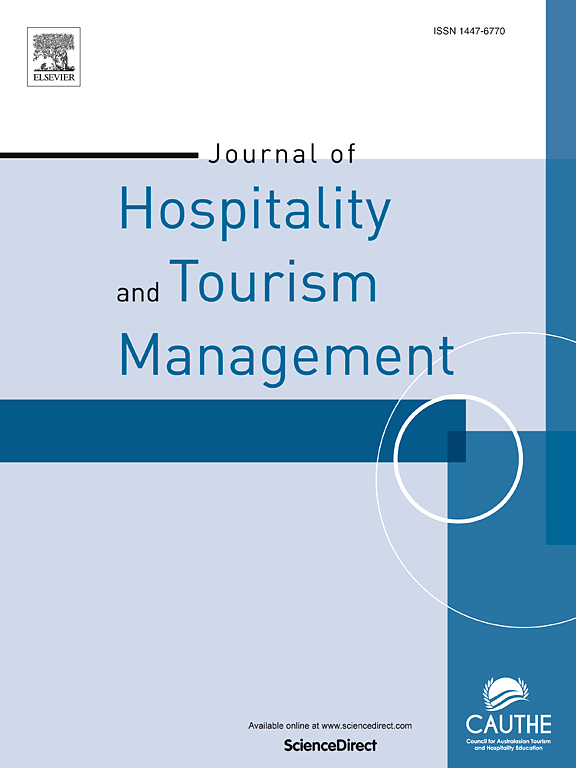Working with robots: A job design perspective of hospitality employees’ collaboration intentions with service robots
IF 7.6
1区 管理学
Q1 HOSPITALITY, LEISURE, SPORT & TOURISM
引用次数: 0
Abstract
As teaming humans and robots becomes increasingly common in hospitality organizations, it is crucial to understand factors that facilitate and hinder human-robot collaborations. Building upon the Job demands-resources (JD-R) theory, this research examines how service robots' human likeness and job design factors affect hospitality employees’ perceptions and collaboration intentions. Data was collected from 488 hospitality employees through three experiment studies. The results show that employees feel more enjoyment and less stress when working with non-humanoid (vs. humanoid) robots, leading to higher collaboration intentions. Specifically, the adverse impact of robot-human likeness on employees' intention to collaborate is mitigated where task interdependence is high, and role clarification is better. The research findings offer hospitality organizations valuable insights into the types of robots that service employees are more likely to accept in collaborative work conditions. Furthermore, it suggests two job interventions to enhance collaborations between humans and robots.
与机器人合作:从工作设计角度看酒店业员工与服务机器人的合作意向
随着人类与机器人的合作在酒店业越来越普遍,了解促进和阻碍人类与机器人合作的因素至关重要。本研究以工作需求-资源(JD-R)理论为基础,探讨了服务机器人与人类的相似性和工作设计因素如何影响酒店业员工的认知和协作意愿。通过三项实验研究收集了 488 名酒店员工的数据。结果表明,员工在与非仿人机器人(与仿人机器人相比)一起工作时,会感到更愉快,压力更小,从而产生更高的协作意愿。具体来说,在任务相互依赖程度较高、角色清晰度较高的情况下,机器人与人类相似性对员工协作意愿的不利影响会有所缓解。研究结果为酒店业组织提供了宝贵的见解,使其了解服务员工在协作工作条件下更有可能接受的机器人类型。此外,研究还提出了两项工作干预措施,以加强人类与机器人之间的协作。
本文章由计算机程序翻译,如有差异,请以英文原文为准。
求助全文
约1分钟内获得全文
求助全文
来源期刊
CiteScore
13.30
自引率
8.40%
发文量
177
审稿时长
45 days
期刊介绍:
Journal Name: Journal of Hospitality and Tourism Management
Affiliation: Official journal of CAUTHE (Council for Australasian Tourism and Hospitality Education Inc.)
Scope:
Broad range of topics including:
Tourism and travel management
Leisure and recreation studies
Emerging field of event management
Content:
Contains both theoretical and applied research papers
Encourages submission of results of collaborative research between academia and industry.

 求助内容:
求助内容: 应助结果提醒方式:
应助结果提醒方式:


